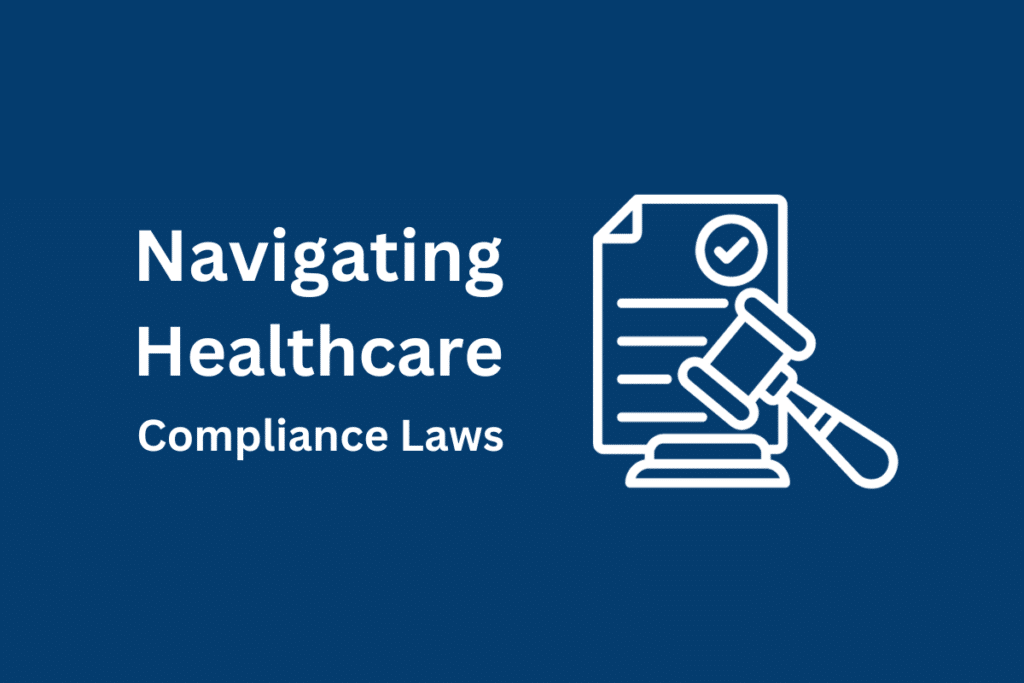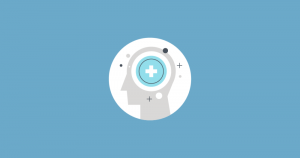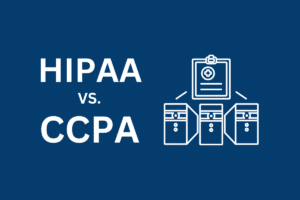Digital healthcare has witnessed a remarkable transformation over the past few years. As technological advancements continue to reshape the medical industry, ensuring compliance with healthcare regulations has become more important than ever.
Healthcare regulatory compliance refers to how healthcare providers, organizations, and digital health solutions adhere to established rules, guidelines, and standards set forth by governing bodies.
From 2009 to 2022, 5,150 healthcare data breaches were reported, each involving 500 or more records. These breaches resulted in the exposure of over 382 million medical records. This statistic is more than enough to emphasize the need for healthcare compliance laws.
These laws are implemented to ensure that healthcare services are safe, effective, and ethical while protecting patients’ rights, keeping their information private, and ensuring the healthcare system works properly.
Let’s take a closer look at each law and understand what they focus on, why they’re important, and how they affect the healthcare industry in North America.
5 Must-Know Healthcare Compliance Laws
Understanding healthcare compliance laws is crucial for any healthcare organization. Let’s go through them one by one.
The Health Insurance Portability and Accountability Act (HIPAA)
Passed on: August 21, 1996
Applies to: Healthcare application vendors, healthcare providers, health plans, healthcare clearinghouses, and business associates.
HIPAA is a crucial federal law in the United States that centers on safeguarding the privacy and security of patients’ health information. It aims to protect individuals’ sensitive medical data when healthcare providers create, maintain, transmit, or receive it.
HIPAA’s primary focus is establishing national standards to protect patient health information’s confidentiality and integrity.
Securing this information requires covered entities to implement comprehensive policies, procedures, and technical safeguards. This involves restrictions on who can access and disclose patient data and using secure electronic systems for data transmission.
For digital health companies, hospitals, doctors’ offices, health insurers, and pharmacies, a HIPAA compliance program is a legal requirement and essential for maintaining patient trust. It helps prevent unauthorized access to medical records and reduces the risk of data breaches that could lead to identity theft or medical fraud.
Failure to comply with HIPAA can result in severe penalties, including hefty fines. Therefore, it’s good to use HIPAA compliance software to adhere to the standard regulatory requirements.
The Health Information Technology for Economic and Clinical Health Act (HITECH)
Passed on: 2009
Applies to: Covered entities and business associates.
The Health Information Technology for Economic and Clinical Health Act (HITECH) plays a crucial role in promoting the widespread adoption and meaningful use of electronic health records (EHRs) in healthcare settings.
It was designed to advance the healthcare industry’s transition from paper-based patient records to electronic systems. The law aims to improve healthcare quality, reduce costs, and enhance patient safety by ensuring healthcare provider access to electronic health information.
One of the primary mechanisms through which HITECH encourages EHR adoption is through financial incentives provided to eligible healthcare professionals and hospitals.
It established the Medicare and Medicaid EHR Incentive Programs, which offer financial rewards to healthcare providers who adopt and meaningfully use certified EHR technology.
These incentives are intended to offset the initial costs associated with implementing EHR systems and provide ongoing financial motivation for their use.
A chief compliance officer with a dedicated team is necessary to deal with HITECH compliance issues.
Healthcare Quality Improvement Act (HCQIA)
Passed on: 1998
Applies to: Healthcare providers, specifically physicians, as well as hospitals, hospital associations, and healthcare entities conducting professional review actions.
The Healthcare Quality Improvement Act (HCQIA) is a federal regulation in the United States that primarily emphasizes healthcare quality improvement and peer review processes.
While HCQIA does not specifically focus on patient data privacy and security like HIPAA, it indirectly contributes to patient safety and quality care, which can indirectly impact data privacy and security.
It encourages healthcare organizations and professionals to conduct a robust peer review process involving the evaluation of the competence and conduct of healthcare practitioners to ensure that they meet established quality standards.
This law makes sure that healthcare providers deliver quality care and reduces the likelihood of medical errors, which can have adverse consequences for patient privacy and security.
The Medicare Access and CHIP Reauthorization Act (MACRA)
Passed on: 2015
Applies to: Medicare enrollees, healthcare providers, and health insurance companies
MACRA seeks to shift the focus from volume-based care to value-based care to emphasize the quality and efficiency of healthcare services. One of the key components of MACRA is the Quality Payment Program (QPP).
The QPP incentivizes healthcare providers to improve the quality of care they deliver to Medicare beneficiaries while controlling healthcare costs. It achieves this by introducing two payment tracks: the Merit-Based Incentive Payment System (MIPS) and the Advanced Alternative Payment Models (APMs).
MIPS is a performance-based payment system that evaluates healthcare providers on four performance categories:
- Quality,
- Promoting Interoperability,
- Improvement Activities, and Cost.
Providers receive an MIPS composite score based on their performance in these categories. This score then determines payment adjustments, with high-performing providers receiving positive payment adjustments and those who perform poorly facing negative adjustments.
Patient Safety and Quality Improvement Act (PSQIA)
Passed on: 2005
Applies to: Healthcare providers, PSOs, health systems, and hospitals.
The Patient Safety and Quality Improvement Act (PSQIA) encourages healthcare providers and organizations to report and learn from medical errors and adverse events non-punitively.
PSQIA established the Patient Safety Organizations (PSOs), which are entities certified by the Agency for Healthcare Research and Quality (AHRQ) to collect, analyze, and share healthcare-related data without the fear of legal repercussions.
Healthcare providers, including hospitals, physicians, and nurses, can report incidents to PSOs without the information being used against them in lawsuits. This confidentiality fosters a culture of openness where healthcare professionals are more inclined to report errors and near-misses.
The primary goal of PSQIA is to facilitate the identification of systemic issues in healthcare delivery that may lead to patient harm.
The PSQIA also offers protections to patient safety work product (PSWP), which includes documents and records created by healthcare providers to improve patient safety. These protections ensure that PSWP remains confidential and is not subject to discovery in legal proceedings.
U.S. State-Specific Regulations
Many U.S. states have specific healthcare and patient information protection laws and regulations.
Here are some notable state regulations related to healthcare and patient information:
1. California Confidentiality of Medical Information Act (CMIA)
Passed on: 1981 (with subsequent amendments)
Applies to: Entities handling medical information of California residents.
This act protects the privacy of individuals by limiting the dissemination and use of medical information. It offers protections beyond what’s provided by HIPAA and imposes stricter penalties on unauthorized access, use, or disclosure of a patient’s medical information.
2. New York’s SHIELD Act
Passed on: 2019
Applies to: Businesses holding electronic data of New York residents, including healthcare entities.
While not exclusively a healthcare regulation, the SHIELD Act requires any business holding electronic data of New York residents to implement specified security measures. It certainly impacts healthcare entities holding electronic Personal Health Information (PHI) of NY residents.
3. Texas Medical Records Privacy Act
Passed on: 2001 (with updates)
Applies to: Entities in Texas dealing with Protected Health Information (PHI).
This act offers broader protections than HIPAA, applying not only to healthcare providers, health plans, and other entities that process health insurance claims but also to any individual, business, or organization that obtains, stores, or possesses PHI as well as their agents, employees, and contractors if they create, receive, obtain, use, or transmit PHI.
Canadian Healthcare Compliance Laws
While the U.S. has its distinct set of compliance laws, Canada too has established robust regulations to protect patient information and ensure the highest standards of care.
Certain provinces have enacted their own healthcare privacy laws, which may take precedence over or complement PIPEDA in specific contexts.
Here are some key Canadian healthcare regulations:
PIPEDA (Personal Information Protection and Electronic Documents Act)
Passed on: April 13, 2000
Applies to: Private-sector organizations in Canada involved in commercial activities.
Also known as HIPAA’s equivalent in Canada, PIPEDA is a federal privacy law for private-sector organizations. It sets out the ground rules for how businesses must handle personal information during their commercial activity, across Canada, except in Quebec, Alberta, and British Columbia (These provinces have their own private sector privacy laws that are similar to PIPEDA).
PHIPA (Personal Health Information Protection Act)
Passed on: November 1, 2004
Applies to: Healthcare custodians and agents in Ontario.
Specific to Ontario, this act provides a set of rules for the collection, use, and disclosure of personal health information. While it’s an Ontario-specific law, its principles resonate throughout Canada’s healthcare sector.
HIA (Health Information Act)
Passed on: April 25, 2001
Applies to: Healthcare providers and entities managing health data in Alberta.
This Alberta-specific legislation provides guidelines on the handling of health information, ensuring both its availability for patient care and the protection of individual privacy.
BC PIPA (Personal Information Protection Act)
Passed on: 2003
Applies to: Every organization in British Columbia, with a broader reach than PIPEDA and Alberta PIPA.
BC PIPA governs the collection, use, or disclosure of personal information within BC, regardless of the activity’s commercial nature.
Quebec Private Sector Act (Act Respecting the Protection of Personal Information in the Private Sector)
Passed on: 1994
Applies to: Any entity engaged in an enterprise in Quebec, as defined by the province’s civil code.
This act governs the management of personal information while operating a business in Quebec, including collection, usage, and third-party communication.
New Brunswick’s Right to Information and Protection of Privacy Act (RTIPPA)
Passed on: June 19, 2009
Applies to: Public bodies in New Brunswick that collect, use, and disclose personal information.
RTIPPA promotes openness and accountability in public institutions while ensuring the stringent protection of individual privacy. It acknowledges the significance of transparent governance in fostering effective citizen participation and a robust democratic society.
Nova Scotia PHIA (Personal Health Information Act)
Passed on: June 1, 2013
Applies to: Organizations handling personal health information in Nova Scotia, such as healthcare providers and health authorities.
PHIA is a comprehensive legislative framework that outlines the parameters for handling personal health information. The act covers all aspects of personal health information, including its collection, use, disclosure, storage, and eventual disposal or destruction.
Newfoundland and Labrador PHIA (Personal Health Information Act)
Passed on: April 1, 2011
Applies to: Health information custodians within Newfoundland and Labrador, including healthcare professionals, health organizations, and public bodies.
Newfoundland and Labrador’s Personal Health Information Act (PHIA) establishes rules for handling such data, ensuring confidentiality and proper usage for healthcare and related purposes, and accommodating necessary access for law enforcement and healthcare management under specific conditions.
Final Thoughts
Healthcare compliance laws are essential to ensure patient data security and quality care. Healthcare startups must invest in robust compliance management solutions to streamline adherence to these complex regulations.
For simplified compliance, consider MedStack, a trusted healthcare compliance platform that offers comprehensive solutions to protect patient data and maintain legal compliance. Get in touch today!





